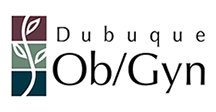Obstetric Routine Care Schedule
The chart below shows the routine appointments and testing needed for your obstetrical care for our office. Please use it as a guide for anticipating upcoming appointments and testing. Because every pregnancy is different, there may be times that you will need to be seen more frequently or perhaps less frequently.
Pregnancy Week |
Type of Appointment Needed |
| 6-7 | Confirmation pregnancy test, ultrasound to confirm location of pregnancy and office visit with provider* |
| 8-10 | Nurse Interview. An experienced obstetrics nurse meets with the patient to go over the personal history and family history of both the mother and the father. The nurse will discuss testing done during the pregnancy, optional testing that is available, and resources available to the patient, and answer any questions the patient might have. The nurse will also instruct the patient to have prenatal labs done at the patient’s lab of choice. |
| 10-12 | Complete prenatal labs. These labs are to review the overall health of the mother. Many health problems that affect a mom can and do affect the unborn baby. This set of testing includes complete blood count, blood type and Rh factor, rubella, Hepatitis B and C, sexually transmitted diseases, and HIV. Any active infections will be treated. If your Rh factor is incompatible, you will receive medication during your pregnancy to ensure that your body does not make antibodies against your baby’s red blood cells. |
| 12 | Obstetrics physical with provider. The provider will review all your medical history, discuss your concerns about this current pregnancy, and answer any questions. If you are due, you may have a PAP smear done at this time. The provider will also go over your prenatal lab results. Each patient will have vitals, weight, and fetal heart tone checked. A 12-week ultrasound MAY be performed based on individual circumstances. |
| 16 | Routine follow up. Each patient will have a routine follow up with an obstetrics provider to include blood pressure and weight check, and fetal heart tone monitoring. |
| 20 | Routine follow-up anatomy scan. In addition to blood pressure and weight check, vitals, and fetal heart tone monitoring, this routine obstetrics visit will be coupled with an anatomy scan (ultrasound). Depending on your BMI, you may also be scheduled to have an early diabetes screen*. |
| 24 | Routine follow-up. Each patient will have a routine follow up with an obstetrics provider to include vitals, blood pressure, weight check, and fetal heart tone monitoring. |
| 28 | Routine follow- up. In addition to vitals, blood pressure and weight check, and fetal heart tone monitoring, during the routine obstetrics visit each patient will have the diabetes screening. Patients will also be offered the Tdap vaccine, if they are eligible. Rhogam* will also be administered to those patients that require it. |
| 30 and 32 | Routine follow-up. Each patient will have a routine follow up with an obstetrics provider to include vitals, blood pressure, weight check, and fetal heart tone monitoring. |
| 34 | Routine follow-up. Routine follow-up with an obstetrics provider to include vitals, blood pressure, weight check, and fetal heart tone monitoring. |
| 36 | Group B Strep, ultrasound and routine follow-up. Group B Strep testing will be performed at the routine obstetrics visit along with a bedside ultrasound to check the baby’s position, vitals, blood pressure, weight check, and fetal heart tone monitoring. |
| 37 – 40 (Seen weekly) | Routine follow-up. Each patient will have a routine follow-up with an obstetrics provider to include blood pressure and weight check, and fetal heart tone monitoring. |
| 6 weeks postpartum | Routine follow-up. Each patient will have a routine follow-up with an obstetrics provider to include vitals, blood pressure, postpartum depression screening, and weight check. Patient’s can discuss their preferred method of contraception as well at this visit. |
Appointments with an * may not apply to all patients or maybe given at different intervals due to a patient’s individual needs. For example, mothers who are over the age of 35 are considered Advanced Maternal Age (AMA). These patients may require closer observation and more frequent appointments. Additional testing may be necessary based on the individual needs of each patient as well as their symptoms.
